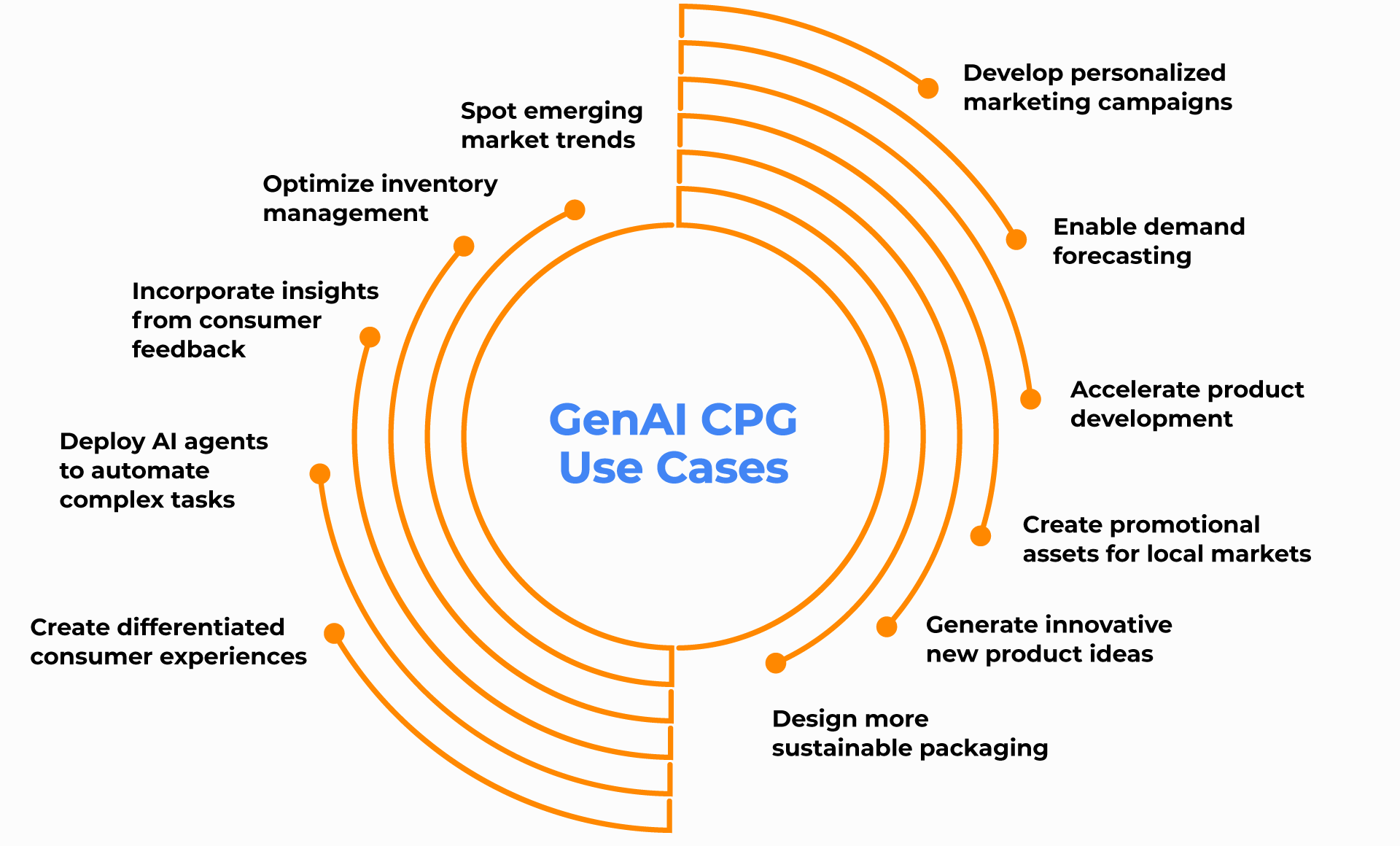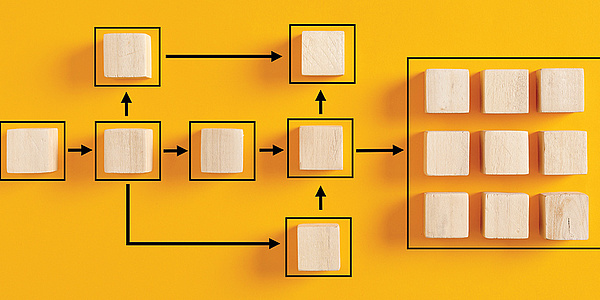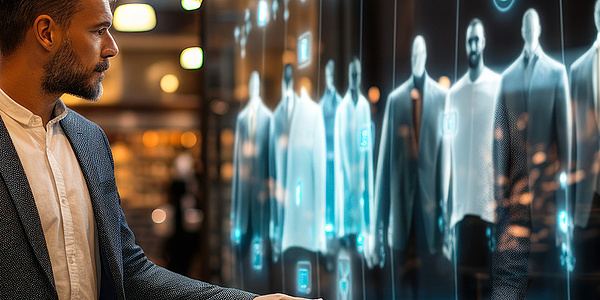
How GenAI is redefining the CPG industry
From product concepts to personalization and differentiation, Generative AI is changing how consumer goods are made and sold
The world’s leading consumer packaged goods brands are using Generative AI to brainstorm ideas, incorporate consumer feedback, optimize supply chains, accelerate development, and enhance personalization. But they still need help deploying GenAI at scale. As organizations evolve into media-centric companies, Qvest’s experience helping transform global media companies can help CPG brands to derive even more value from this technology.
Why CPG brands are turning to GenAI
The consumer packaged goods industry has embraced GenAI, and this will fundamentally change how products are created, marketed, and sold.
Nearly three out of four CPG companies and retailers have adopted some form of AI, and more than half are using it on a regular basis. Some analysts predict that widespread GenAI adoption could generate an additional $270 billion in annual profits for CPG companies.*
The benefits of Generative AI for CPG companies include the ability to automate labor-intensive tasks, generate new product ideas, analyze market data, optimize their supply chains, enable personalization on a massive scale, and much more. When implemented at scale, GenAI can help spur topline growth while slashing the cost of production.
Automating data capture: Walmart used GenAI technology to integrate more than 850 million pieces of data into its product catalog, boosting productivity by 100X.
Deep data analysis: Nestlé and General Mills are using an intelligent chatbot named Max to measure brand performance and identify growth trends for their Cereal Partners Worldwide joint venture, reducing time needed for analysis from days to minutes.
Product innovation: Mars’ internal AI tool uses data from consumer insight studies to generate up to 50 new product concepts each day, while Nestlé is using GenAI to slash the product ideation process from six months to six weeks.
Supply chain optimization. Unilever is integrating AI throughout its supply chain, from image capture within storage facilities to analyzing satellite imagery of farm and mill suppliers. GenAI improved Unilever’s ability to monitor farm sustainability practices by 30% and allowed it to reduce the number of mills it relies on by more than half.
Customized marketing content: Procter & Gamble is using GenAI to generate new marketing concepts and test their effectiveness, enabling the company to test copy in days instead of months, and at a fraction of the previous cost.
Personalized shopping advice: Sephora’s AI-powered virtual beauty assistant offers personalized product recommendations and advice for online shoppers in Asia Pacific, increasing incremental store revenue by $30,000 a month.
New opportunities for GenAI in CPG
That’s just a fraction of the ways CPG firms will deploy GenAI going forward. There are many more opportunities for CPG companies to use this groundbreaking technology to increase their agility, responsiveness, and resilience. For example, GenAI can be used to:


How GenAI can unlock computer vision for CPG brands
Computer vision is another forward-looking use case that can significantly boost the bottom line for CPG brands.
Retailers can use it to optimize product placement on store shelves, measure customer engagement, and create better in-store experiences. Manufacturers can use computer vision to automate product inspections and track inventory, and designers can use it to improve the readability and functionality of packaging.
But computer vision applications are based on deep learning models that are costly to develop, requiring hand labeling and data annotation from human experts. That’s why, so far, only the largest CPG operations have been able to take advantage of this technology.
At Qvest we’re pioneering innovative new methods for using GenAI tools to automate image data capture and tagging, greatly reducing the amount of data needed to train each model. This unique approach can slash the cost and reduce the risk of developing brand-specific image recognition models, making computer vision accessible to more CPG companies.

Accelerate your AI journey with Qvest
Qvest brings decades of experience working with global companies to deploy innovative new technologies, implementing customized solutions that combine technological prowess with proven change management techniques.
Key to our approach is the belief that every brand will become a media company. Every organization is expected to produce enormous amounts of text, images, and video across a range of different outlets. Each brand is seeking to connect with its own, highly defined audience. Our services and accelerators are designed to help CPG brands, informed by years of experience helping Fortune 1000 media companies in the world implement technological and organizational change.
While each business has its own unique challenges and proprietary data, the fundamental processes between organizations are often similar. Our bespoke approach to applying Generative AI for CPG takes each organization’s individual needs into account. We can help you identify the most promising use cases, obtain high-quality training data, and develop a working proof of concept in a matter of weeks. We can also help you uncover AI-powered insights that drive decisions about which products to bring to market, streamlining development and generating innovative ideas.
See how we’ve helped Fortune 1000 companies accelerate technology adoption, increase collaboration across their organizations, and derive greater value from their most precious asset: their proprietary data.
* “Fortune or Fiction? The real value of a digital and AI transformation in CPG,” McKinsey & Co, October 2024.

